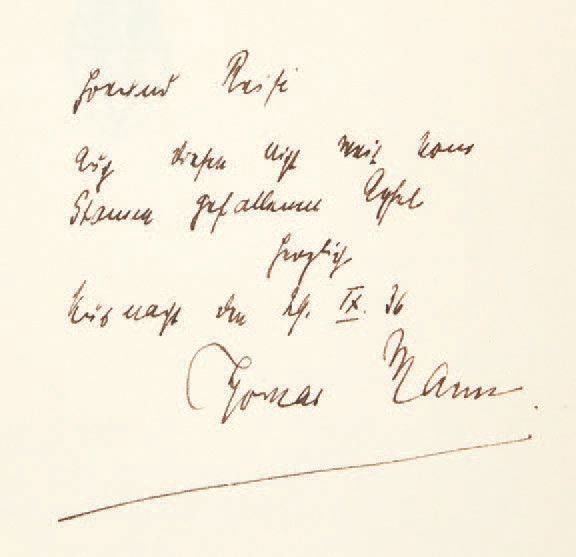Description
MANN, Thomas.
Freud und die Zukunft. Vienna, Bermann-Fischer Verlag, 1936. In-8 [224 x 155] of 42 pp, (1) f. : paperback, in red chagrin spine folder and Boichot case. First edition. Speech delivered on May 8, 1936 in Vienna on the occasion of Sigmund Freud's eightieth birthday. Autograph letter signed by the author on the first blank page: Hanschen [?] Reisi// Auch dieser nicht weit vom // Stamm gefallener Apfel // herzlich // Küsnacht - den 29. IX. 36 // Thomas Mann Hans Reisiger (1884-1968), a writer and translator, was a close friend of Thomas Mann from 1913. He was to serve as a model for Rüdiger Schildknapp's novel Dr. Faustus. His translations are esteemed, especially that of the works of Walt Whitman. A very nice copy.
You may also like
